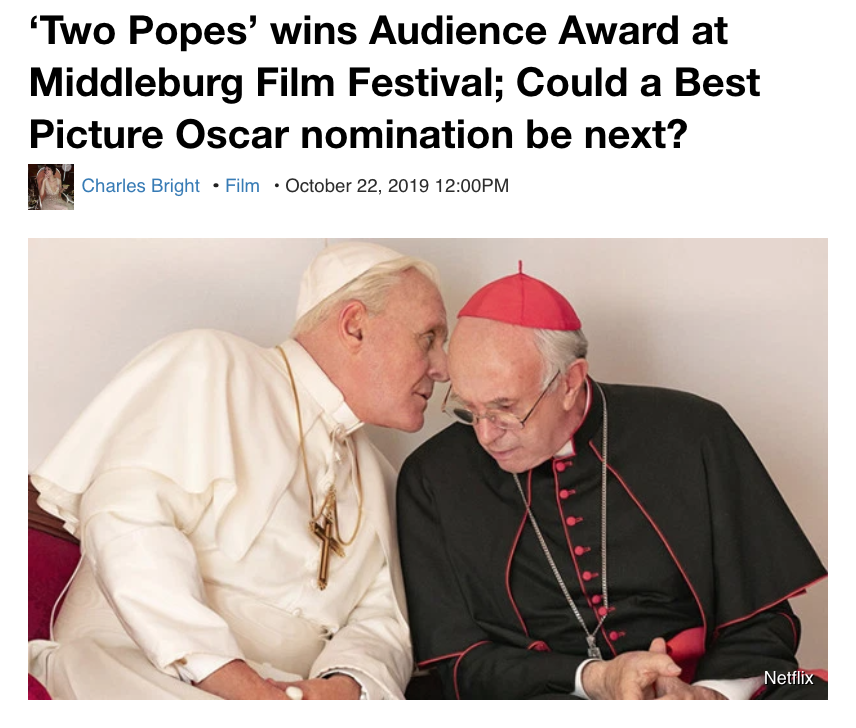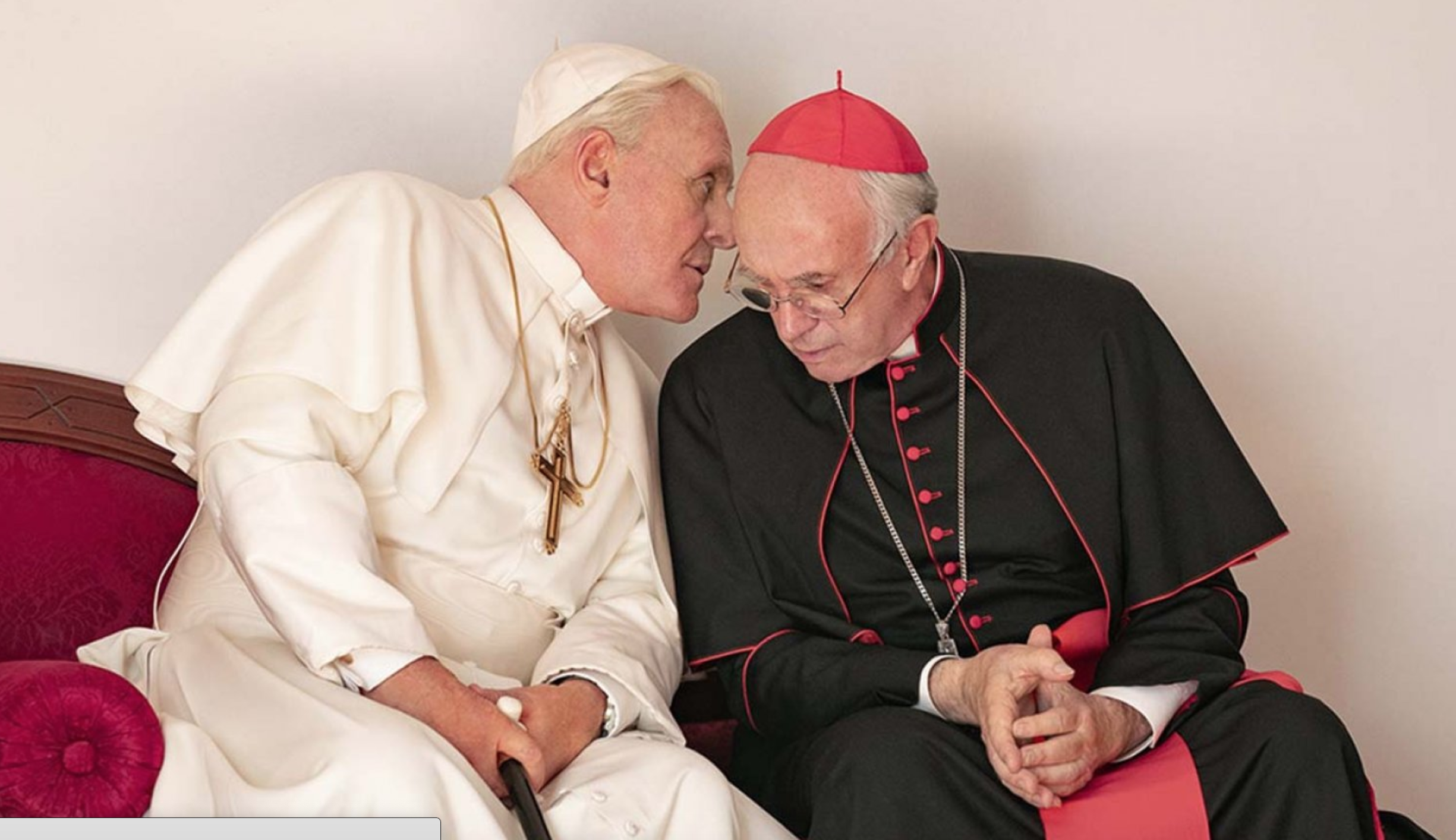Catholicism and the Pope are concepts that millions still cling to worldwide. Because they offer a feeling of steadiness and security in a tumbling, tumultuous world. Included among the faithful, one presumes, are thousands of movie-worshipping Catholics, and so Fernando Meirelles and Anthony McCarten‘s The Two Popes (Netflix, 11.27) is, not surprisingly, faring well as a potential Best Picture nominee. The fact that it won the Audience Award at the 2019 Middleburg Film Festival is an indication of this.
I saw The Two Popes for the second time last night, and I felt slightly more charmed and moved than I did during my initial viewing in Telluride.
I have nothing but respect and admiration for the film, and particularly for McCarten’s script (which is based on McCarten’s 2017 play, The Pope). In my humble opinion McCarten should definitely be nominated for Best Adapted Screenplay. And it seems increasingly likely that Jonathan Pryce‘s performance as the future Pope Francis (aka Cardinal Jorge Mario Bergoglio) will be Best Actor-nominated as well.
But honestly? I still feel emotionally removed from The Two Popes (as I wrote in my 9.1.19 Telluride review). Because I don’t feel any sort of kinship, much less a profound one, with the Catholic Church. I never have and I never will.

I don’t believe in holiness. I don’t believe in the Vatican carnival. I don’t believe in robes. I don’t believe in red shoes. I believe in Michelangelo’s Sistine Chapel frescoes and in Charlton Heston‘s performance in The Agony and the Ecstasy, but I haven’t the slightest belief in those Vatican City guard uniforms or the mitre or the scepter of any of the theatrical trappings. I believe in humanity and simplicity. I’m not exactly saying that I believe in Pope Lenny more than Pope Francis, but in a way I kind of do. Almost.
I don’t believe in the Bible…not really. I certainly don’t believe in celibacy for priests, and I despise the thousands of priests who’ve molested children worldwide and the countless bishops and cardinals who’ve protected them from the consequences. I believe that women should definitely be admitted into the priesthood. And while I understand and respect the fact that millions believe in the Catholic mission and its hierarchy, I myself don’t. Catholicism is more against things than for them.
“Robe, Mitre, Scepter,” posted from Telluride on 9.1.19:
Fernando Meirelles‘ The Two Popes is an interesting, mildly appealing two-hander as far as it goes. I had serious trouble with the refrigator temps as I watched, but I probably would have felt…well, somewhere between faintly underwhelmed and respectfully attentive even under the best of conditions.
It’s a wise, intelligent, non-preachy examination of conservative vs progressive mindsets (focused on an imagined, drawn-out discussion between Anthony Hopkins‘ Pope Benedict and Jonathan Pryce‘s Pope Francis a few years back) in a rapidly convulsing world, and I could tell from the get-go that Anthony McCarten‘s script is choicely phrased and nicely honed. But I couldn’t feel much arousal. I sat, listened and pondered, but nothing ignited. Well, not much.
Possibly on some level because I’ve never felt the slightest rapport with the Catholic church, and because for the last 20 or 30 years I’ve thought of it in Spotlight terms, for the most part.
I love that Pope Francis (formerly or fundamentally Cardinal Jorge Bergoglio of Argentina) is a humanist and a humanitarian with simple tastes, and I was delighted when he jerked his hand away when Donald Trump tried to initiate a touchy-flicky thing a couple of years ago. And I’m certainly down with any film in which two senior religious heavyweights discuss the Beatles, “Eleanor Rigby” and Abbey Road, etc.
But it just didn’t seem to amount to that much. For me. Maybe because I’m a lapsed Episcopalian from way back, or maybe because I’ve always considered myself, spiritually speaking, to be an LSD mystic by way of the Bhagavad Gita.
No disrespect to Meirelles, Pryce and Hopkins and the other principals. I just didn’t feel it. Please don’t let this stop you if you’re inclined to give it a shot when it starts streaming on Netflix. It’s fine. Just because a film is good, sturdy and respectable doesn’t mean you’re obliged to sing hosannahs.

